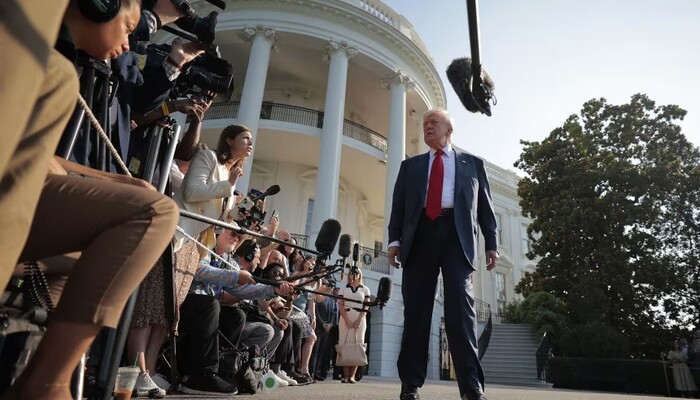The Corporation for Public Broadcasting (CPB) will shut down after over six decades of service, following a sweeping rescissions bill signed by former President Donald Trump. The bill slashed $1.1 billion in public media funds, effectively ending federal support for local NPR and PBS stations. For Trump, the closure marks a long-sought political win. For millions of Americans, especially in rural areas, it could mean the loss of a vital source of news, education, and culture.
Final Blow to Public Media
On Friday, CPB announced that it would begin winding down operations. The decision came just days after Trump successfully pushed a GOP-backed bill that rescinded $9 billion in congressional funding—$1.1 billion of which was allocated to CPB for the next two years.
“Despite the extraordinary efforts of millions of Americans who called, wrote, and petitioned Congress to preserve federal funding for CPB, we now face the difficult reality of closing our operations,” CPB President and CEO Patricia Harrison said in a statement.
While some major stations may weather the storm through private donations and grants, hundreds of smaller, community-run stations face immediate threats to survival.
Impact on Local Stations
CPB leaders are now focused on helping local stations navigate abrupt financial shortfalls. Rural outlets, which often rely heavily on federal funding, are at the highest risk. Without CPB support, these stations may be forced to go dark—cutting off communities from educational programming, local journalism, and emergency alerts.
NPR CEO Katherine Maher stressed the broader consequences: “The ripple effects of this closure will be felt across every public media organization and, more importantly, in every community across the country that relies on public broadcasting.”
The organization will eliminate most of its 100 staff positions by September 30. A small team will remain through January to manage the closure and ensure an orderly transition.
Read: Wall Street Tumbles After Trump Tariffs and Weak Jobs Report
A Political Victory for Trump
For Trump, defunding CPB was a long-standing goal. He frequently criticized public media outlets like NPR and PBS, claiming they harbored a liberal bias. His administration made multiple failed attempts to reduce or eliminate funding for the CPB during his first term. This time, backed by a Republican-controlled Congress, he succeeded.
On Truth Social, Trump celebrated the defunding effort: “REPUBLICANS HAVE TRIED DOING THIS FOR 40 YEARS, AND FAILED….BUT NO MORE.”
Earlier this year, Trump even attempted to remove three CPB board members, although the law that established the corporation in 1967 gave him no such authority. The CPB challenged the move in court but voluntarily dropped the lawsuit on Friday, signaling a reluctant acceptance of political defeat.
Decades of Service Cut Short
The CPB was created in 1967 to act as a firewall between politics and public media funding. It helped fund nearly 1,500 local radio and television stations and served as the backbone for content on NPR, PBS, and other educational platforms. Its mission was to ensure that Americans—regardless of geography or income—had access to high-quality, non-commercial programming.
Many of its beneficiaries were stations in Indigenous, remote, or underserved communities. These outlets often delivered more than entertainment; they provided health information, local news, and even safety alerts during natural disasters.
Uncertain Future for Public Broadcasting
Public media leaders had hoped Congress would restore CPB funding through the regular appropriations process. But a draft spending bill circulated in the Senate last week contained no such provision. The omission suggests the funding cut is likely permanent.
For advocates, the CPB’s closure signals a fundamental shift: the federal government is exiting the public broadcasting space entirely.
“The end of CPB is the direct result of a political movement that no longer values shared, fact-based media,” one public media executive said.
As CPB’s lights begin to dim, the challenge ahead for public broadcasters will be finding new sources of support—or risk disappearing from the airwaves entirely.
Follow us on Instagram, YouTube, Facebook,, X and TikTok for latest updates
